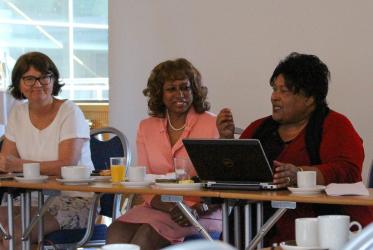Displaying 41 - 60 of 69
17 July 2016
AIDS 2016: “Stigma kills more people than HIV”
17 July 2016
New Executive Committee members elected in Trondheim
28 June 2016
Tveit in South Africa: “ We know. We dare. We can.”
12 June 2016
WCC Executive Committee speaks out on migrant crises
12 June 2015












